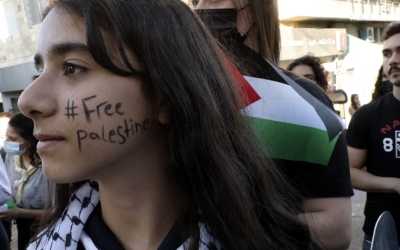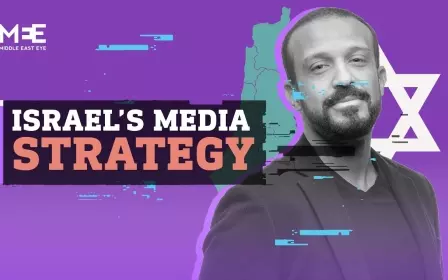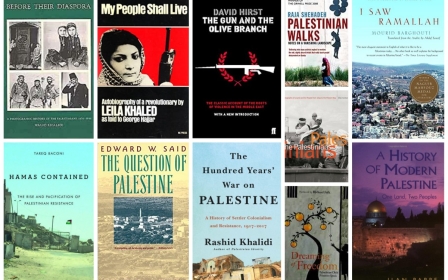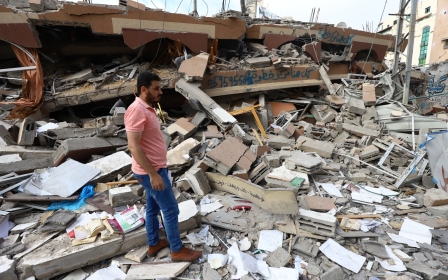Gaza ceasefire will not stop Sheikh Jarrah tensions and renewed solidarity, say Palestinians
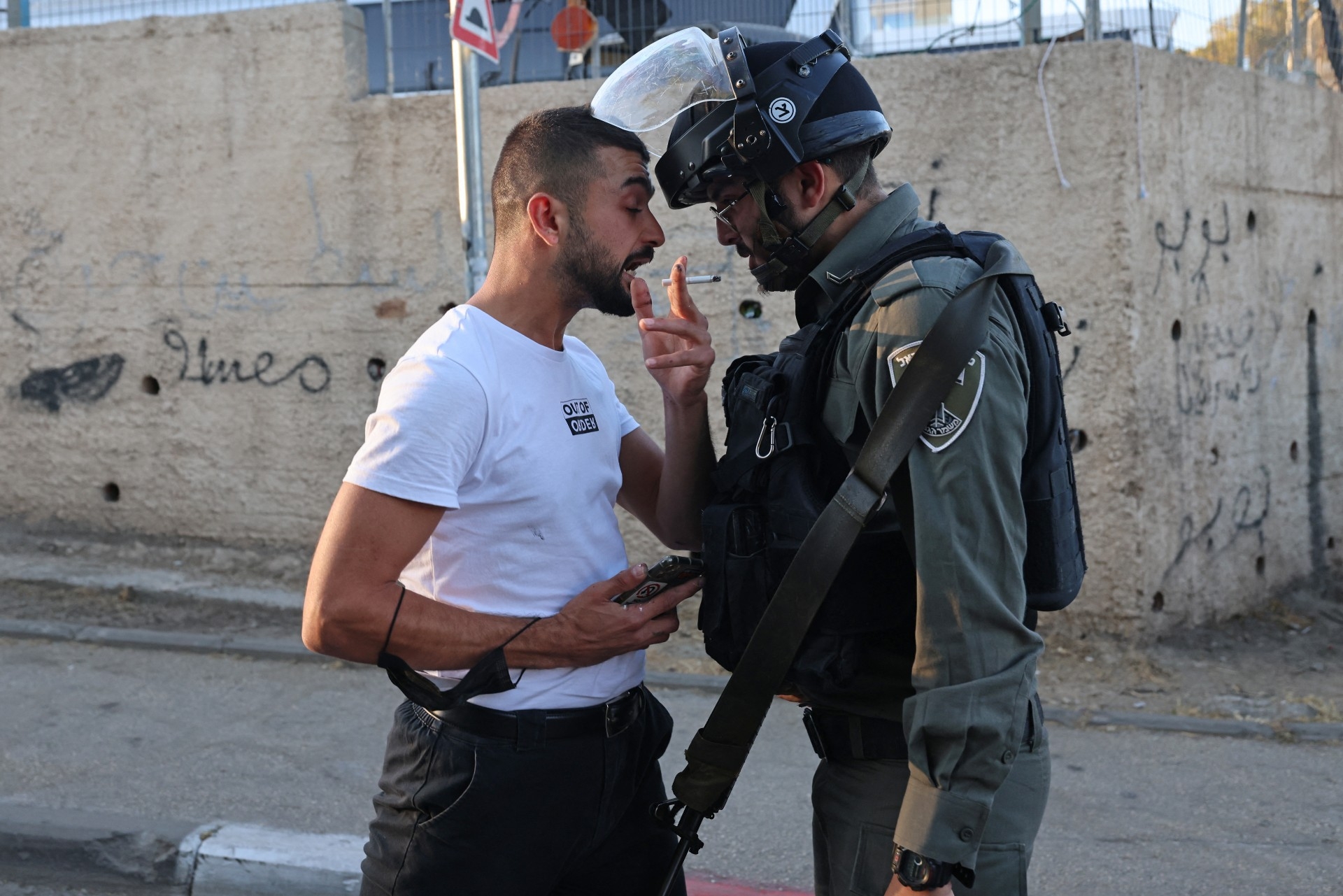
The relief across Israel and Palestine was palpable on Friday morning, as the 2am ceasefire in Gaza came into effect.
An Israeli bombing campaign that killed at least 232 Palestinians in the Gaza Strip, including 65 children, came to an end after 11 days. No more rockets, which killed 12 in Israel, have been fired from the besieged enclave.
But the Gaza violence was not limited to the territory alone. It was sparked by violent Israeli raids in al-Aqsa Mosque and threatened expulsions in Jerusalem's Sheikh Jarrah neighbourhood.
'This mask will disappear shortly after the end of the war and the occupation will return to its violations'
- Hamza Qattina, lawyer
And it was followed by huge protests by Palestinian citizens of Israel in several mixed cities, and a deadly Israeli crackdown in the occupied West Bank, which left 29 people dead by Wednesday.
Those issues, those tensions are not going away, say Palestinians in Jerusalem and the West Bank. Particularly in Sheikh Jarrah, where 40 Palestinians, including 10 children, are still set to be booted from their homes in favour of Israeli settlers.
New MEE newsletter: Jerusalem Dispatch
Sign up to get the latest insights and analysis on Israel-Palestine, alongside Turkey Unpacked and other MEE newsletters
Hamza Qattina, a lawyer from Jerusalem, said the ceasefire brought about a "disguised and temporary calm" in the city.
"This mask will disappear shortly after the end of the war and the occupation will return to its violations," he told Middle East Eye.
He noted that Israeli courts had not annulled the decision to evict Palestinian residents from their homes, in a case that is yet to have a final ruling at the Supreme Court.
"Instead, occupation forces have set up barricades around Sheikh Jarrah and besieged its people even more. They are trying to expel the families making the least noise possible," he added.
Qattina said that he expected Israel to de-escalate tensions in Jerusalem for a few weeks, "so that everyone thinks they are not the ones causing tensions".
'New equation'
Hatem Abdel-Qader, a member of the Fatah Revolutionary Council and Council of Islamic Endowments, said that recent developments in Gaza created a new awareness regarding the Palestinian struggle and the dire situation in Jerusalem.
"Jerusalem will remain the compass and heart of events regardless of whether the aggression on the Gaza Strip ends or continues," he told MEE.
"The battle in Jerusalem is still ongoing and will continue until Israel ends the occupation. For Israel, Jerusalem is at the forefront of its attack on Palestinian national aspirations and it’s undergoing a fierce open war against all components of the city," he told MEE.
'Jerusalem will not calm down as long as Sheikh Jarrah is being targeted'
- Hatem Abdel-Qader, Fatah Revolutionary Council
"Therefore, the noble al-Aqsa Mosque will remain the hottest flashpoint and the other point will be Sheikh Jarrah. These won't calm down as long as Israeli measures continue.
"I believe Jerusalem before the 28th of Ramadan is different from Jerusalem after this date," Abdel-Qader said.
"There is a new awakening and a new equation established by the people of Jerusalem which is based on meeting Israeli oppression and aggression with steadfastness and resistance."
This new equation, according to Abdel-Qader, is what compelled Israel to postpone, even if temporarily, the eviction notice for the residents of Sheikh Jarrah. He pointed out that Israel has realised the expulsions would constitute a “red line” for the residents of Jerusalem.
"Jerusalem will not calm down as long as Sheikh Jarrah is being targeted and there are attempts to evict Palestinians."
Palestinian struggle bolstered
Meanwhile, researcher and political analyst Khalil Shaheen believes that the current moment across occupied Palestinian territories will strengthen the longstanding tradition of resistance in the Palestinian struggle against Israel.
Speaking to MEE, Shaheen said the struggle against the occupation has been taking a new turn since 2014, after the Israeli assault on the Gaza Strip and the popular uprising that coincided with it in the West Bank. Then there was the Jerusalem popular uprising in 2017 against the installation of electronic gates by Israeli authorities on gates of al-Aqsa Mosque.
On the current wave of demonstrations, Shaheen said the West Bank is witnessing a new phase. The researcher said the wave has mostly been dominated by youth and popular initiatives that appear to be largely unorganised but are still able to accumulate efforts and make an impact.
Despite Shaheen's optimism that the popular sentiment of resistance in the West Bank will continue, he fears the Palestinian Authority’s repressive policies will likely lead to more oppression and persecution.
"There is a big gap between the aspirations of the Palestinian street and the aspirations of the Palestinian Authority [PA],” Shaheen said.
Palestinian President Mahmoud Abbas was eager for the fighting in Gaza to end so that he can focus efforts on going back to negotiations with Israel and reviving the peace process, Shaheen said.
"There is a gap between the PA on one hand, which wants to recreate the same old policies, and a Palestinian youth on the other hand who want to forge a new path for themselves,” he said.
"The PA is showing support to the current popular uprising, but in reality, it doesn’t want any change to the status quo. Therefore, in the coming stage, we will witness a heavier crackdown from the PA, which fears the explosion of Palestinian society."
Middle East Eye delivers independent and unrivalled coverage and analysis of the Middle East, North Africa and beyond. To learn more about republishing this content and the associated fees, please fill out this form. More about MEE can be found here.


